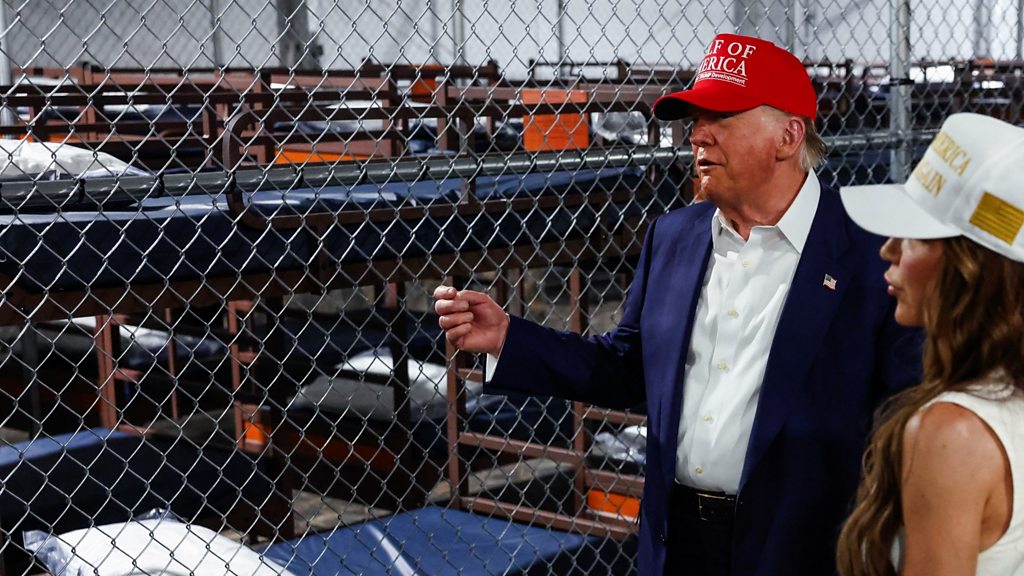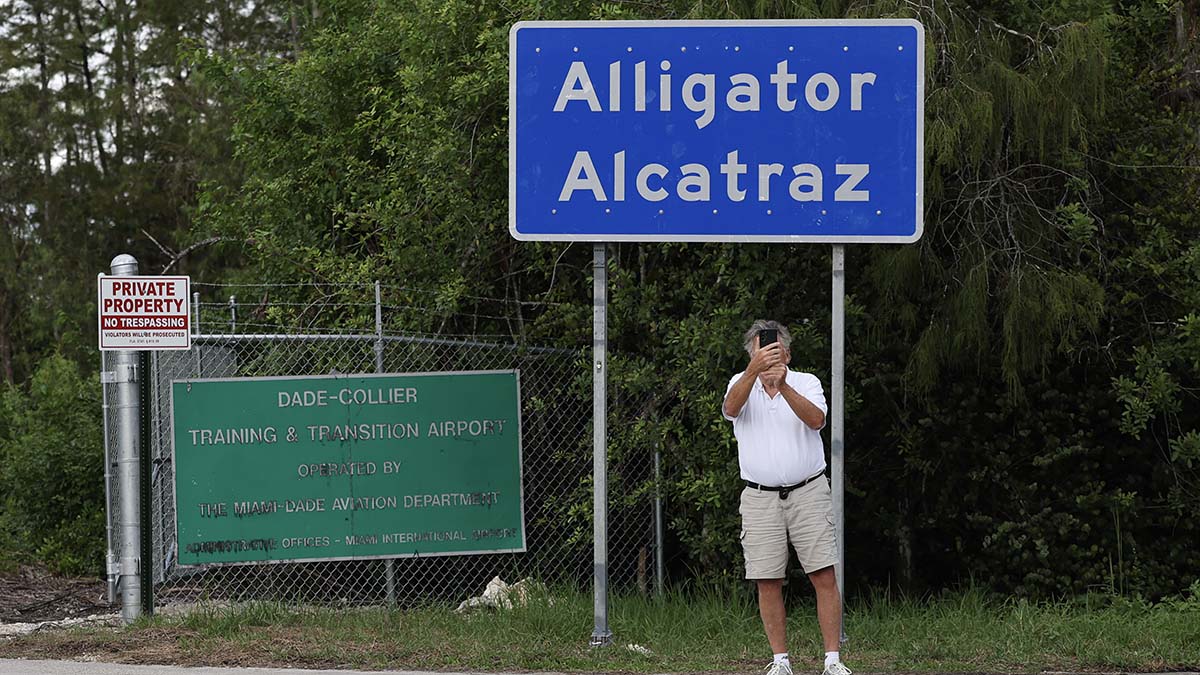
The future of Florida’s controversial immigration detention center, dubbed “Alligator Alcatraz,” has taken a dramatic turn after the 11th U.S. Circuit Court of Appeals halted a lower court order demanding its closure.
The decision preserves the facility for now, ensuring that President Donald Trump’s immigration crackdown continues in the state while broader legal battles play out.
On Thursday, the appeals court issued a stay against U.S. District Judge Kathleen Williams’ August ruling, which had ordered the dismantling of the detention center within 60 days.
Williams, an Obama appointee, sided with environmental groups and the Miccosukee Tribe in concluding that the facility violated federal law by being built on Everglades wetlands without a full environmental review.
Her order called for the relocation of detainees and the removal of all infrastructure, including fences, lighting, and security features. But the appeals court decision halts those requirements, allowing the center to continue operating while the case moves forward.
Florida Attorney General James Uthmeier celebrated the ruling as a victory against what he called “judicial activism.”
“Victory secured against the activist judge who tried to stop us,” Uthmeier wrote on social media. He emphasized that the 11th Circuit not only blocked Williams’ closure order but also froze her ability to proceed further until the appeal is resolved.
Governor Ron DeSantis also praised the decision, saying, “The mission continues,” framing the ruling as proof that Trump’s immigration enforcement strategy remains intact despite resistance from progressive activists and environmental advocates.
Victory secured against activist judge who held me in contempt!
The 11th Circuit not only blocked Judge Williams’ order to close Alligator Alcatraz, but they blocked her from proceeding with the case until the appeal is complete.
A win for Florida and President Trump’s agenda!— Attorney General James Uthmeier (@AGJamesUthmeier) September 4, 2025
“Alligator Alcatraz” was constructed on a remote Everglades airstrip and quickly became a centerpiece of Trump’s strategy to expand detention capacity.
The facility has the capacity to house thousands of detainees at a time, enabling federal officials to speed up the removal of migrants with criminal histories and pending deportation orders.
For Trump’s allies, the center symbolizes tough, uncompromising enforcement. For critics, it represents government overreach, human rights abuses, and disregard for environmental protections.
Florida officials argue that the facility is essential to maintaining law and order. DHS data revealed that dozens of detainees held at the site have criminal convictions, including violent crimes, and Florida insists the center has prevented dangerous individuals from being released back onto the streets.
Judge Williams’ original ruling was a major victory for the Miccosukee Tribe and environmental groups. They argued that the detention center was unlawfully rushed into operation without conducting environmental impact studies required by federal law.
The construction, they claimed, damaged wetlands and threatened wildlife habitats in the Everglades.
The Miccosukee Tribe, whose ancestral lands border the facility, said the detention center disrupted sacred sites and violated their rights. Environmental activists echoed these concerns, calling Alligator Alcatraz a monument to “reckless policy.”
Williams sided with these arguments, concluding that the state and federal government had bypassed critical legal requirements to expedite construction. Her ruling shocked Florida officials and triggered outrage from Trump allies, who accused her of prioritizing ideology over public safety.
The financial implications of shutting down the center are staggering. Florida has already invested $218 million into the project, with contracts totaling more than $405 million and estimated annual operating costs of $450 million.
Dismantling the facility would have left taxpayers with hundreds of millions in losses and no replacement for the detention capacity it provided. For Florida officials, the appeals court ruling is not just about immigration but also about safeguarding the state’s financial investment.
Even though the appeals court ruling keeps Alligator Alcatraz open, legal battles continue on multiple fronts. A separate lawsuit filed on behalf of detainees alleges constitutional violations, including denial of private access to attorneys and inhumane living conditions.
A federal court in Fort Myers heard arguments on these claims Thursday, with attorneys insisting detainees are subjected to overcrowding, inadequate medical care, and violations of due process. If proven, those allegations could trigger new court-imposed reforms or further litigation that complicates the facility’s future.
The appeals court’s decision represents more than a procedural victory; it underscores the national divide over immigration enforcement. Trump and his allies argue that expanding detention is essential to restoring order at the southern border and protecting communities from criminal aliens.
Democratic leaders and progressive groups argue it reflects an inhumane and unlawful approach that sacrifices human rights and environmental protections.
The clash also highlights the tension between federal authority and judicial oversight. For Trump’s supporters, Judge Williams’ ruling was evidence of activist judges undermining executive authority.
For opponents, the appeals court stay signals the judiciary’s struggle to balance public safety with environmental and human rights concerns.
The 11th Circuit’s stay ensures that Alligator Alcatraz remains open while the appeal is considered. This provides Florida and federal authorities breathing room to continue Trump’s immigration crackdown. But the fight is far from over.
Future hearings will determine whether Williams’ ruling ultimately stands, whether detainee lawsuits succeed, and whether environmental challenges gain traction.
Until then, Florida officials see the appeals court decision as a green light to maintain operations and preserve their strategy of aggressive immigration enforcement.
The battle over Alligator Alcatraz is emblematic of the broader national fight over immigration, governance, and accountability. For Trump and his allies, the detention center is a necessary tool to secure the border and uphold the rule of law.
For opponents, it represents reckless disregard for the environment, constitutional rights, and human dignity.
The appeals court’s ruling preserves the facility for now, but the ultimate verdict on its future remains uncertain. As the legal challenges unfold, the clash between state officials, federal authorities, tribal leaders, and activists will continue to shape the debate over how America balances security, justice, and its commitment to the rule of law.





-1749877511-q80.webp)